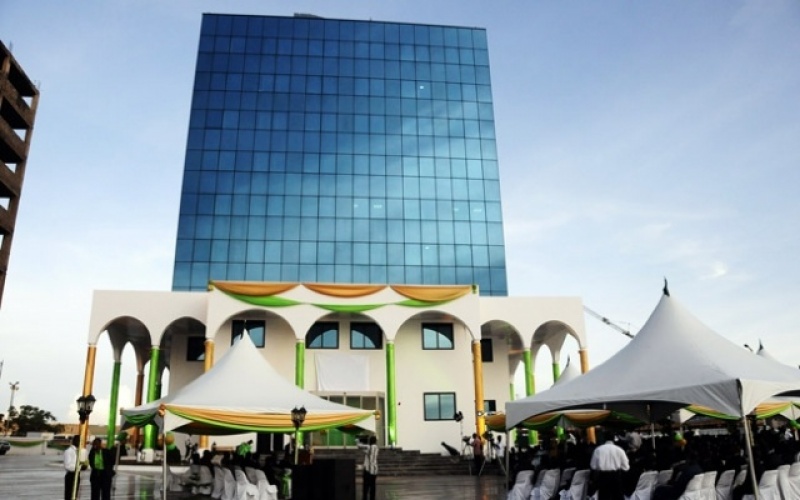A study on risk management and performance of listed banks on the Ghana Stock Exchange (GSE) found that UT Bank had the highest risk of collapsing long before it was taken over by GCB Bank together with Capital Bank for their insolvency.
The study conducted by Eric Dei Ofosu-Hene of the Department of Finance, University of Ghana Business School, College of Humanities, Legon, Accra, Ghana, and Peter Amoh, FinRisk Solutions, Accra, Ghana, was published in the European Journal of Business Science And Technology.
The risk levels of the listed banks were computed for the period between 2007 and 2014.
The objective of the study was in two parts; first, to construct an overall risk index to ascertain risk level of banks listed on Ghana Stock Exchange (GSE), second, to ascertain whether there is a significant relationship between risk management and bank performance.
Secondary data of all listed banks on GSE over the period 2007–2014 was used and a panel regression data approach and a risk index were constructed for all listed banks.
The findings showed that banks listed on Ghana Stock Exchange have declining risk indexes on average over the latter part of the study period indicating that the Ghanaian Banking Regulator may have to impose additional prudential and regulatory requirements to ensure banks remain solvent. “We also find evidence that risk management is positively related to performance of GSE listed banks when the latter is measured from ROE perspective.”
The study said the overall risk index for individual banks listed on Ghana Stock Exchange (GSE) improved from an average of 25.93 in 2007 to a peak of about 33.3 in 2010 and steadily fell to about 26.54 in 2013 but with a sharp fall in 2014 hitting 8.58.
The study said the situation could be attributable to the “harsh economic conditions in 2014 resulting from the major power outages facing many industries in the country and hence increasing banks risks exposures.”
The findings showed that “UT Bank was the most risky bank over the period scoring the lowest risk index and averaging around 2.28 whilst the average risk index over the entire period was about 25.93. This could, therefore, be attributed to tough competition that it has faced since it converted from financial Service to bank in 2007.”
“Our findings further suggest that SSG Bank was the safest among all the banks constantly out preforming all the other banks over the entire period except in 2014 and recorded the highest average risk index of 54.28 for the period under review.
“This may be attributed to its conservative banking philosophy. All indigenous Ghanaian banks; GCB, CAL and UT had average risk index of about 13, 22.58 and 2.28 far below the overall average of 25.93 except HFC which scored a risk index of about 6.5 above the overall average.
“In contrast non-indigenous Ghanaian banks except SCB which recorded a risk index slightly lower the overall average all other nonindigenous Ghanaian banks; ECB and SGG had risk index of about 39.61 and 54.28 respectively which were far above the overall average. It therefore be inferred that the Non-indigenous Ghanaian banks were a lot safer than the indigenous Ghanaian banks. This could be as a result of the more strenuous prudential regulatory risk management frameworks which overseas banks are subjected to,” the report said.
It added that based on the summary of risk level of GSE listed banks computed using the risk index suggested by Hannan and Hanweck (1988), it was found that the safest GSE-listed bank for the period under study was SGG Societé Generale Bank.
“General impression is that indigenous Ghanaian listed banks has lower risk index relative to foreign listed banks. However, the most risky GSE-listed bank was UT bank.
“From the panel data regression analysis, it was found that there is a positive relationship between risk management and performance when the letter is measured by ROE and not ROA. However, risk management does not have a stronger impact on bank performance (ROE) which implies that, as banks increase their risk management practices it results in a marginal increase in banks’ ROE.
“Overall listed banks in Ghana have weakening risk management index over the entire study period suggesting that banks may be exposed to undue economic uncertainty and this may call for additional capital to cushion bank against insolvency. We, recommend that the Ghanaian banking regulator and bank management may need a rethink of the approaches in the management of their risks and need to be cautious when establishing risk management frameworks and policies to ensure judicious use of deposits to enhance bank performance,” the study said.
Source:Ghana/AccraFM.com

































